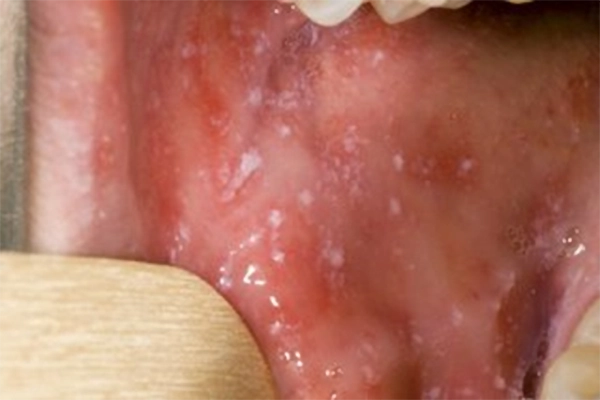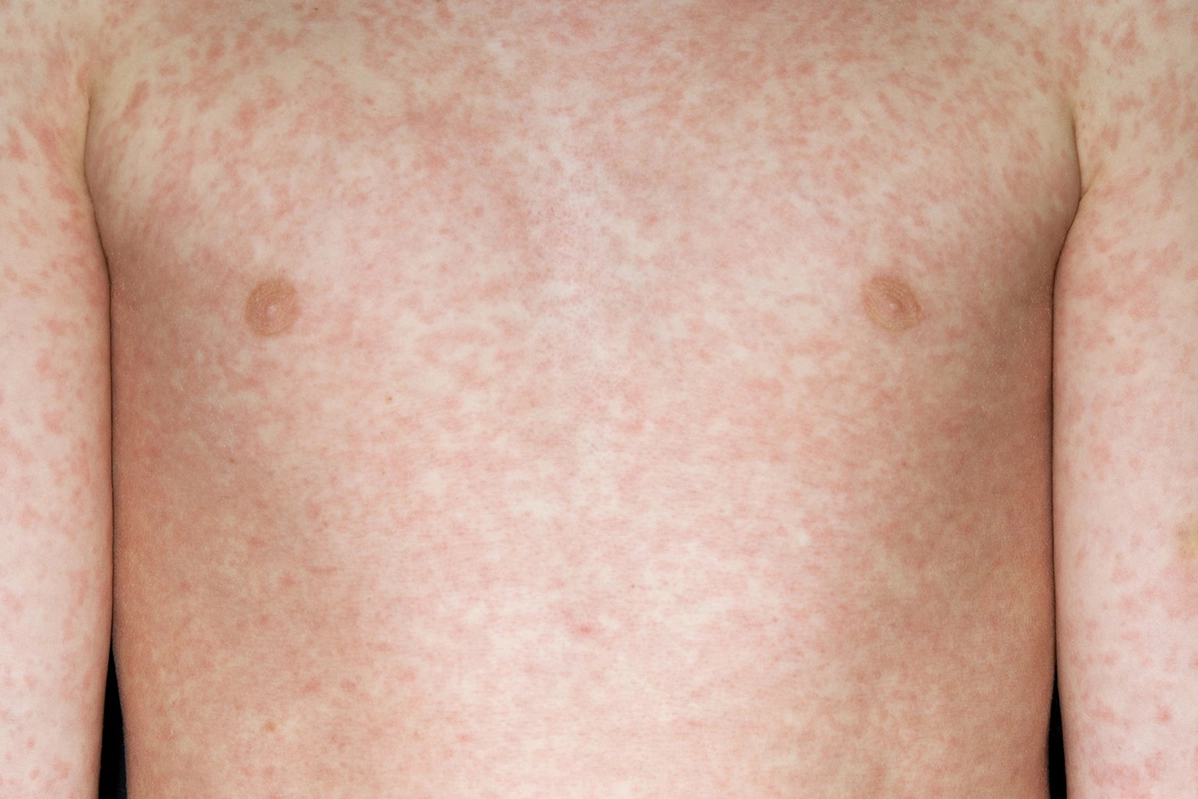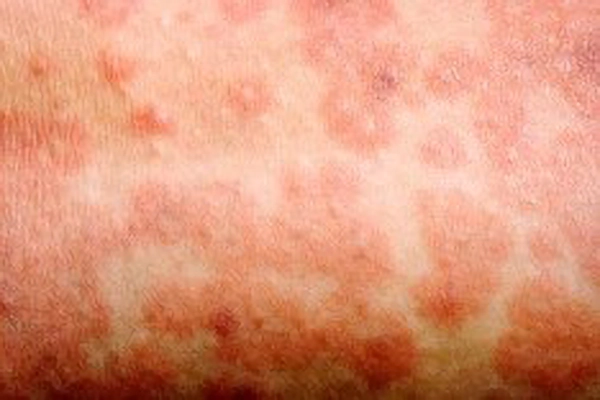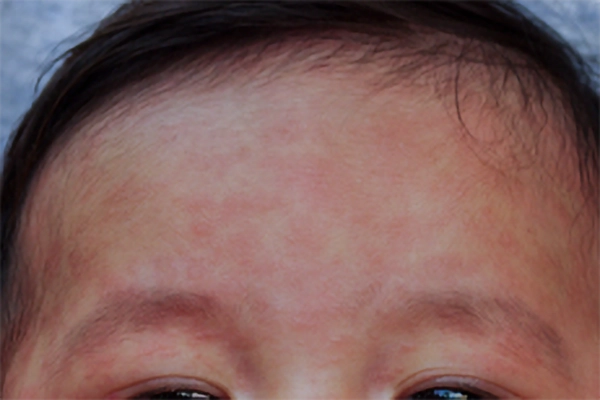Measles - what do you need to know?
Measles, mumps and rubella (MMR) had almost disappeared in England because most people had been vaccinated.
Now, not enough people have had the MMR vaccine, so these dangerous illnesses are becoming more common. Measles, in particular, is highly contagious and can cause serious, long-term side effects.
There have been outbreaks of measles in areas of the UK, so it’s really important that as many people as possible are protected.
What is Measles?
Measles is an infection that spreads very easily and can cause serious problems in some people. Measles usually starts with cold-like symptoms and fever, followed by a rash a few days later. Some people may get small spots in their mouth.
Learn more about measles on the NHS website
The best way to protect against measles is to get the MMR vaccine.

Spots may appear inside the cheeks and on the back of the lips a few days later.

The rash starts on the face and behind the ears before spreading to the rest of the body.

The spots of the measles rash are sometimes raised and join together to form blotchy patches. They're not usually itchy.

The rash looks brown or red on white skin. It may be harder to see on brown and black skin.
Who should get the MMR vaccine?
Everyone should have 2 doses of the vaccine, which protects against 3 diseases! If your child hasn’t had 2 doses of the vaccine, you should get them vaccinated ASAP.
How do I get the MMR vaccine?
- Unvaccinated children 0 to 5 years old will be invited to book into clinics at your GP surgery. Look out for a text link.
- Unvaccinated children 6 to 17 years old will be vaccinated by the schools’ immunisation team. Your child’s school should be in touch regarding this.
- Unvaccinated 17 to 30 year olds will be contacted by your GP surgery. Look out for a text link.
- If you receive an invite but know that you have already had both doses of MMR, please let you GP practice know, so that they can update their records.
- If you’re not sure whether you or your children are fully vaccinated, you can check your vaccination records on the NHS App, ask your parents if you were vaccinated or ever had measles, or look up the vaccination records in your child’s red book.
How does the MMR vaccine work?
This is a live vaccine that protects against measles, mumps and rubella. Two doses are given at least 28 days apart by injecting into the leg or upper arm.
Your immune system responds to the vaccine by producing cells that recognise and remember each of the three viruses. If you come into contact with the viruses in the future, these cells activate and rapidly produce antibodies. This gives long lasting protection for all 3 viruses (measles 99% effective, mumps 88% effective, and rubella 99% effective)
How safe is the MMR vaccine?
Before vaccines can be used, they have to be vigorously tested for safety. The MMR vaccine has been in use in the UK since 1988 and has helped to protect millions of people. Although there may be some side effects from vaccinations, they are usually mild and much less severe than the disease itself. Serious reactions following vaccinations are rare.
What should I do if I think someone in my household has measles?
Measles is contagious, so you should ensure the person affected stays off school or work for at least 4 days from when the rash first appears. You should also make your child’s school and GP aware.
If you feel you need to see a GP, the receptionist will want to verify the vaccine status of the patient (whether they have had 2 doses of MMR or a previous infection of measles) and may arrange a telephone call with a doctor. If a doctor needs to see the patient, then they may ask them to wait in the car to try to avoid spreading the infection to more vulnerable patients.
Measles will usually pass in about 7 to 10 days without causing any further problems. You can manage symptoms by giving paracetamol or ibuprofen to relieve fever, aches and pains. Ensure that the patient drinks plenty of water to avoid dehydration and close the curtains to reduce light sensitivity.
Anyone with measles should avoid contact with babies and anyone who is pregnant or has a weakened immune system.
If you are not vaccinated and you come into contact with someone who has measles, then current guidance is to self-isolate for 21 days.
Published: Feb 7, 2024
We use cookies to help provide you with the best possible online experience.
By using this site, you agree that we may store and access cookies on your device. Cookie policy.
Cookie settings.
Functional Cookies
Functional Cookies are enabled by default at all times so that we can save your preferences for cookie settings and ensure site works and delivers best experience.
3rd Party Cookies
This website uses Google Analytics to collect anonymous information such as the number of visitors to the site, and the most popular pages.
Keeping this cookie enabled helps us to improve our website.
